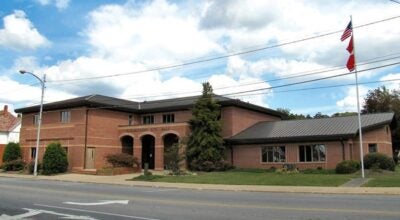Judge denies request to suppress evidence in murder case
Published 7:44 pm Thursday, December 14, 2017

- Star File Photo Eric Azotea, at left, speaks with attorney Lesley Tiller in court during a previous court appearance.
A double murder case set for trial in February will proceed as planned after the judge presiding over the case denied a motion by defense attorneys to suppress evidence obtained through the execution of a search warrant.
Eric James Azotea, 46, of the Pinecrest community, faces charges of two counts of first-degree murder, two counts of abuse of a corpse, and one count of tampering with or fabricating evidence. The charges stem from an investigation into the 2015 deaths of Art Gibson and Amber Terrell. The District Attorney’s office is seeking the death penalty against Azotea in the case. He is scheduled to stand trial in February.
Attorneys representing Azotea filed a motion with the court in November seeking to suppress evidence collected by investigators during the execution of search warrants, which the defense alleges contained “reckless misrepresentation of facts.”
Criminal Court Judge Stacy Street, who is presiding over the case, held a motion hearing on Dec. 12 to hear arguments regarding suppressing the evidence.
A large part of the challenge surrounded cellphone tracking technology. In the affidavits filed by Carter County Sheriff’s Office Deputy Chief Investigator Mike Little and Tennessee Bureau of Investigation Special Agent Brian Fraley, the investigators stated cellphone records showed Terrell’s cell phone had been at Azotea’s home on the night Terrell and Gibson disappeared.
A defense expert testified during the hearing that the information on the affidavit to obtain the search warrants was flawed and calculating the exact location of a cell phone from cell tower pings was not possible.
Little and Fraley both testified during the hearing that they based the request for the search warrant on information they understood to be correct.
Following arguments, Street ruled against suppressing the evidence collected by the search warrants, saying the defense had not shown the investigators knowing provided false information or were reckless with the information they provided.
Street also ruled on other motions related to evidence — including motions for the state to turn over information they have to the defense and redacting portions of a taped interview with Azotea which do not relate to the murder investigation.
Azotea’s trial is scheduled to begin with jury selection on February 5 and is expected to last two weeks. Members of the jury will be sequestered at an area hotel during the trial to attempt to eliminate any outside influence from media coverage or outside sources. Prior to that, the court will hold preliminary jury selection on Jan 29-31. The attorneys and Street will conduct individual one-on-one interviews with jurors to eliminate potential jurors who may have already formed opinions on the case, those have prior knowledge about the case, and those who cannot vote for the death penalty.





